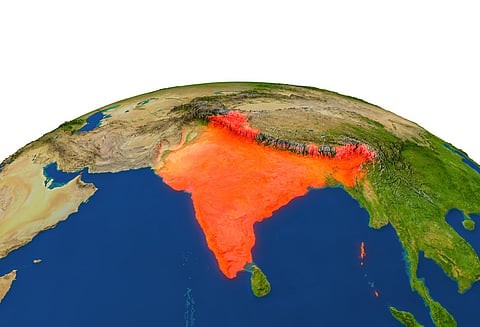Description

Source: TheEconomist
Disclaimer: Copyright infringement not intended.
Context: After two rounds of polling on June 30 and July 7, France will elect a new National Assembly. For the first time in 22 years, there is a real possibility that the President and the Prime Minister, leader of the National Assembly, will not be from the same party.
Details
The Fifth Republic
- France is a semi-presidential, representative parliamentary democracy, with clearly defined roles for the President and the Prime Minister.
- The current political regime, called the Fifth Republic, first came into effect in 1958, replacing the former parliamentary republic system with what political scientist Jean V Poulard calls a “double-headed executive” (“The French Double Executive and the Experience of Cohabitation”, 1990).
- The new constitution of 1958, which introduced the Fifth Republic, restored executive power.
Since 1962, the French President has been directly elected by popular vote, while the Prime Minister is the leader of the largest party/coalition in the National Assembly.
President vs Prime Minister
- The President, elected for a term of five years, serves as the head of the state and Commander of the Armed Forces.
- He/She enjoys regulatory power, exercising control of all decisions on matters of foreign policy and defence. Until 2000, the President enjoyed seven-year terms, which was then reduced to five-year terms.
- In contrast, the parliament, headed by the Prime Minister, is responsible for all domestic policy decisions.
- Article 21 of the French constitution allows the PM the power to “direct the actions of the government.” The cabinet is appointed by the President under the PM’s recommendation.
- The Prime Minister himself cannot be dismissed by the President, but his resignation can be requested. The President can be impeached by the Parliament for willfully violating the Constitution or the national laws. This requires a two-thirds majority in both houses of the French Parliament, as well as in a joint session of both Houses.
Te concept of Cohabitation in France
- A situation where the President and the PM belong to different political parties
- PM may choose his cabinet colleagues. None of the members of the Govt. can be a part of the legislature
- Cabinet is presided over by the President.
- The Lower House can pass the ‘Censure Motion’ against the PM and his CoM, which would imply that they must resign.
- The President is elected for a fixed term. Initially, the term was 9 years, reduced to 7 years and at present is 5 years.
- They follow Second Ballot system (i.e. an absolute majority of the total votes polled is needed)
Round of election
- The President of the Republic shall be elected by an absolute majority of votes polled: if in the first round of elections, no person gets absolute majority only the top two candidates remain and the rest are eliminated.
- The second round of election takes place, in which one person is able to get the absolute majority.
Instances of Cohabitation
There have only been three such instances in the French Fifth Republic:
- President François Mitterrand of the Socialist Party and Prime Minister Jacques Chirac heading the right-wing RPR/UDF coalition (1986-88).
- President Mitterrand and Prime Minister Edouard Balladur of the RPR/UDF coalition (1993-95).
- President Chirac and Prime Minister Lionel Jospin of the Socialist Party (1997-2002).
Outcomes of these previous cohabitations
- Each of these periods was marked by administrative logjam and friction between the executive and the state.
- President Mitterrand in 1986 had refused to sign ordinances on denationalisation that Chirac’s government had proposed.
- The move would have ensured the privatisation of over 60 industrial groups, reversing the work done by the previous Socialist government.
- While this legislation would eventually take the form of a bill and be passed in Parliament, it allowed Mitterand to reiterate his status as a Leftist leader.
Upcoming polls
- The French parliament is a bicameral legislature consisting of an upper house, the Senate, and a lower house, the National Assembly.
- The upcoming polls will elect legislators for 577 seats in the National Assembly, including 13 overseas districts and 11 constituencies that represent French expats abroad.
- A party needs 289 seats to secure an absolute majority.
- The elections will be held in two rounds. The first, scheduled for June 30, serves as an eliminator for those candidates who fail to win 12.5% of locally registered votes. Additionally, any candidate with 50% of the vote and at least 25% local electoral turnout wins automatically in a few constituencies.
- The second round, scheduled for July 7, will feature close contests between two to four candidates, with alliances usually coming to light at this point.
Sources:
IndisnExpress, Aljajira
|
PRACTICE QUESTION
Q. A political phenomena called “cohabitation” is associated with which of the following?
A. USA
B. UK
C. France
D. New-Zeeland
Answer C
|











